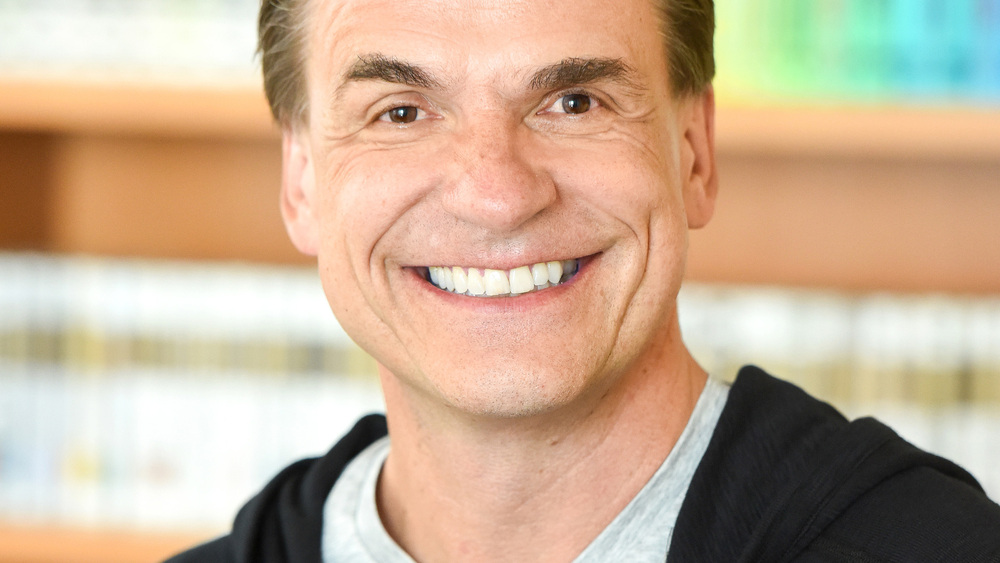You are viewing your 1 free article this month. Login to read more articles.
Turbulence ahoy as big publishers find trouble at top
Penguin Random House didn’t succeed in buying Simon & Schuster; someone else will. But the uncertainty hanging over US publishing is not just centred on who buys Paramount’s books division.
Volatility, anyone? Despite the strength that books have shown through the pandemic, turbulence within some of the biggest houses has been notable both at the top of the hierarchy and lower down. It’s likely to continue through 2023, especially as we see some softening in print sales and may be confronting a US recession as the Federal Reserve battles inflation.
Penguin Random House didn’t succeed in buying Simon & Schuster; someone else will. But the uncertainty hanging over S&S won’t end when it finds a new owner. The only sure thing is that more uncertainty about what that owner plans to do will follow. Will executives come, stay, or go? Some suggest that the probable owner will be an investment firm like KKR, whose senior media sector advisor, Richard Sarnoff, has substantial past history with Random House. But ownership by an investment firm is usually not forever, and might find us wondering again in five years about S&S’s long-term fate. The Department of Justice having won its antitrust suit against PRH, can another big five house–Hachette or Harper–with considerable but less market share than PRH, throw its hat in the ring, or did the DoJ scotch that completely? Ironically, as its future is being determined, S&S is looking to next January and the centennial of its birth.
Meanwhile the fallout from PRH’s failed bid and the business revelations during the trial that led up to it have been all too evident: goodbye, Markus Dohle, PRH’s former global c.e.o. Once Random House was sold by its founders into conglomerate ownership in the mid-1960s, it was subsequently the case that after every new owner arrived, or after a major mess-up occurred, the corporate owner parted company with the c.e.o. (even if the mess was of the owner’s making). Each c.e.o thought it would be different for him, but it never was; in that sense, Dohle’s departure was to be expected. The $200m cancellation fee that Bertelsmann owed S&S owner Paramount was not chump change.
Dohle, who arrived from Germany to run Random House in 2008 amidst the doldrums of the global financial crisis, settled his family in Scarsdale, a wealthy New York suburb, and brought energy and optimism to the job. In 2013, he effected the merger with Penguin. During his watch, PRH added more lucrative distribution clients and distribution and warehousing hummed. He has stood up for freedom of expression. But in corporate mergers, individual company cultures and personalities are lost – so it happened with Penguin and so many PRH divisions. Organic growth from within, book by book, seems much harder to effect the larger a corporation gets, and so to retain and build market share and confront the looming shadow of Amazon, the big turn to adding even more companies. Dohle’s timing was off second time around: the consolidation-friendly DoJs of Obama and Trump were gone.
Some years back, this reporter heard PRH’s long-serving former c.o.o. and current interim c.e.o Nihar Malaviya speak at several public gatherings. He was clearly very technologically savvy, thoughtful, and good with numbers, and some reckon it likely that Malaviya will settle into his job for the long-term. Others wonder whether, after a while, Bertelsmann’s owners, the Mohn family, might appoint one of their own, Carsten Coesfeld, who after running Dorling Kindersley during the pandemic is now in charge of Bertelsmann investments. Coesfeld is even younger than Dohle was when he took over.
Madeline McIntosh, PRH’s US c.e.o, was quoted in DoJ trial documents as having favoured more ”background coordination” among divisions to avoid ”internal upbidding” in auctions. Dohle was not happy. Nor were literary agents. However, it was another powerful player, Random House Book Group president Gina Centrello – her fiefdom encompassed RH, Modern Library, Ballantine, Bantam, Dell, Crown, and other imprints–who left last week, two days after publishing the mega-selling Spare, with no successor named. PRH appears to be a rather stressful place these days; many will be watching its space.
Macmillan, having parted with two heads in quick succession during the last two years, in September surprised many by shuttering its Metropolitan Books imprint after 27 years (Sara Bershtel, Metropolitan’s founder, landed at Penguin Press this month). Workman, so wonderfully idiosyncratic in its Varick Street digs under its brilliant, late founder Peter Workman, is soon moving uptown under the corporate roof of Hachette, who bought it 18 months ago, just as Penguin once migrated to the RH building in midtown. And the 250 unionized workers at HarperCollins remain on strike, rallying again.
As panels at a Digital Book World conference in New York this week made clear, most publishers have mandated a return from fully remote to hybrid work at headquarters or regional hubs, and not everyone is happy. As Laini Brown, publicity director at Hachette’s Nashville operation pointed out, the pandemic allowed for hiring outside traditional hubs, which helped diversify staff. Now that the company has instituted mandatory hybrid work, it makes it harder to advance DEI and accessibility goals – ”we’re losing a lot of good people,” Brown said– even if being in the office together does foster a certain kind of cohesion.
Finally, as consumer behaviours have changed as a result of the pandemic, the most important–and hopeful–takeaway from DBW came from multiple sessions devoted to audiobooks. Yes, we’ve seen major growth in the sector these past few years, but as Spotify global head of audiobooks Nir Zicherman pointed out, ”there is huge untapped potential both on the supply and the demand side...and the true size of the industry is by orders of magnitude much bigger than we think.” Growing the space is the ”real opportunity,” Zicherman said, rather than simply competing against ultra-dominant Amazon. Innovation in terms of models–subscription, a la carte, and others; formats; ways of reaching new audiences; publishing directly into audio; harvesting content from backlist; and AI should help turbocharge the sector and counteract softness in print.


















